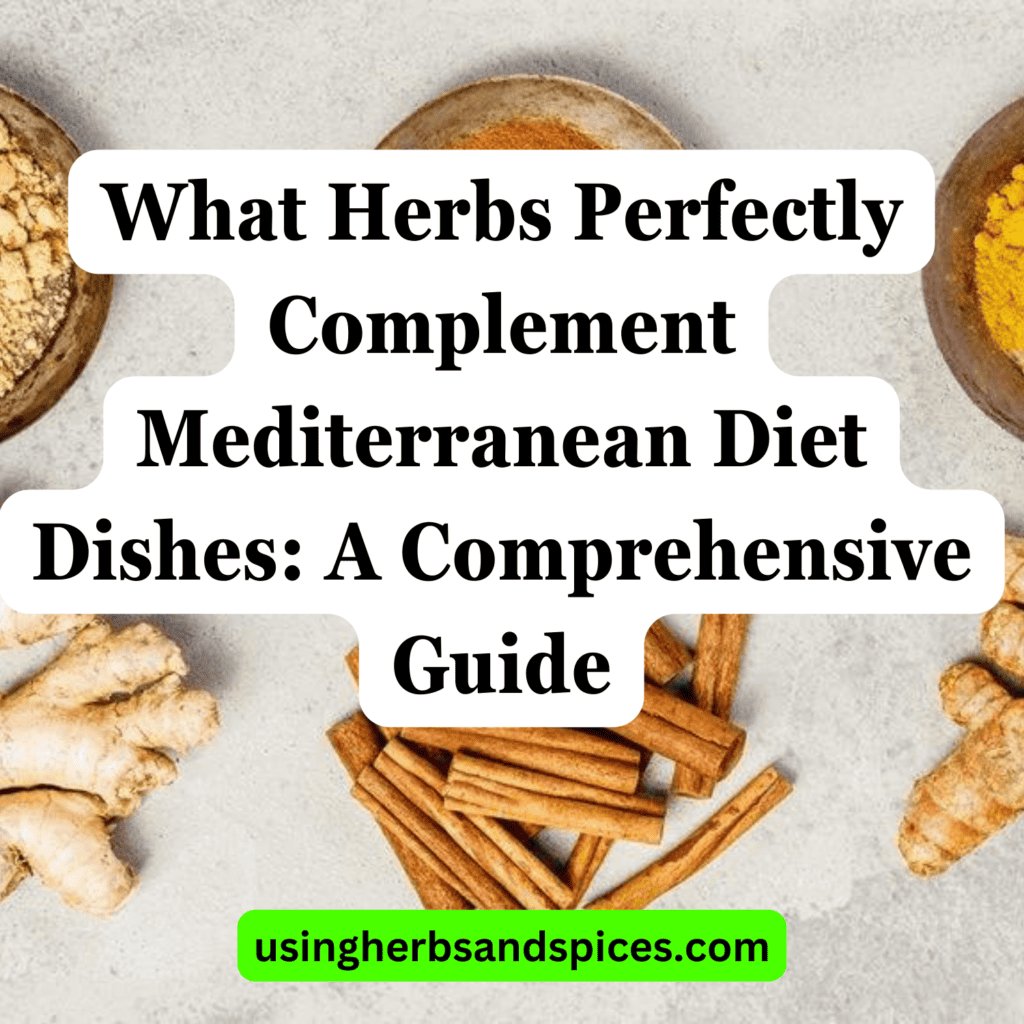SUMMARY: Aromatic herbs, from basil to thyme, significantly enhance the flavor profile of vegetarian dishes, making them more appealing and tasty. Integrating these herbs effectively into your dishes and understanding the best pairings can lead to extraordinary meals, such as signature veggie dishes that highlight their unique flavors.

Have you ever felt your vegetarian dishes lacking something?
This is a common concern among people adapting to a veggie cuisine lifestyle.
Keep reading, and let’s make your veggie cuisine not just nutritious, but flavourfully aromatic as well!
Table of Contents
Understanding the Basics of Aromatic Herbs
When you dive into the world of aromatic herbs, you embark on an adventure through nature’s own flavor palette. These herbs, ranging from basil to rosemary, from sage to thyme, carry distinctive scents and tastes that can elevate any dish, even more so in veggie cuisine where every flavor is the star of the show.
But what makes these herbs aromatic? Simply put, it’s the essential oils these plants produce. These oils, packed with complex compounds, release aromatic molecules when crushed, chopped, or heated. This ‘aroma release’ is what adds the magical dimensions of taste and smell to your food.
Aromatic herbs are not just flavor boosters but bring a whole range of health benefits. Rich in antioxidants, they also have anti-inflammatory and antibacterial properties. Some herbs like rosemary are known for their cognitive benefits, while others like thyme have been used in medicinal teas for centuries.
Are you ready to add these natural powerhouses to your veggie dishes? You’re in for a treat!
Best Aromatic Herbs for Vegetarian Dishes
Choosing the right herb for your vegetarian dish can make all the difference. Spices and herbs are known for their remarkable ability to enhance the taste, smell and look of any dish, adding a pleasingly complex level of flavor and aroma. Below are some of the best aromatic herbs you should consider using in your vegetarian recipes.
Basil
With its sweet, strong aroma and flavor, basil is an ideal herb for various vegetarian dishes. It works perfectly in Italian cuisine like pasta, salads, and pizzas, in addition to Thai and Vietnamese dishes.
Cilantro
Cilantro, also known as coriander leaves, is incredibly versatile. With a distinct freshness and strong citrusy flavor, it is commonly used in Mexican, Middle Eastern, and Asian cuisines.
Rosemary
Rosemary’s strong, pine-like aroma and flavor make it a superb complement for roasted or grilled vegetables. Whether it’s potatoes, carrots or bell peppers, rosemary will surely enhance their taste.
Mint
Mint adds a refreshing tone to any dish with its cool aftertaste. Its versatility makes it a popular ingredient in salads, beverages, and even desserts.
Thyme
Thyme’s subtle, dry aroma and slightly minty flavor integrate well in a myriad of dishes, including stews, soups, and roasted vegetables.
Parsley
Parsley, with its mild bitter flavor, can help balance out the flavors in a dish and add a touch of color. It’s great in salads, soups, and sauces, and it’s a common ingredient in Mediterranean cuisine.
These aromatic herbs can significantly enhance vegetarian dishes, making them more complex and interesting. However, the list doesn’t end here. There are plenty more herbs waiting to be explored, and each has its unique charm to add to your veggie cuisine.
How to Incorporate Aromatic Herbs into Veggie Cuisine
There is an artistry in cooking that blends flavors to create a palatable experience. In veggie cuisine, this can be elevated to a whole new level when aromatic herbs are added into the mix. Unfortunately, some people do not know how to effectively incorporate these herbs into their dishes, resulting in a flavor that is too overpowering or hardly noticeable.
Bearing that in mind, follow these simple steps to properly incorporate herbs into your dishes:
- Pick fresh herbs: Whenever possible, select fresh herbs over dried ones as they have a more robust flavor. However, if using dried herbs, remember that their flavor is concentrated, so you’ll need less.
- Proper chopping: Chopping herbs is an art. To release the flavor and aroma, chop them finely. A rough chop will not release as much flavor.
- Adding at the right time: While it often depends on the recipe, most aromatic herbs are best added towards the end of the cooking process. This is because prolonged heat can diminish their flavor.
- Tasting as you go: Remember always to taste as you cook. This will help you to adjust and balance the flavor of the herbs in the dish.
Mastering the use of herbs can take time, and every chef has their strategies and preferences. Start with these basics, and with experience, you’ll find what works best for you and your veggie cuisine.
A Closer Look at Some Signature Veggie Dishes Enhanced by Aromatic Herbs
Aromatic herbs are the secret ingredients that transform the humblest of vegetables into a gastronomic feast. Let’s take a closer look at some of the signature veggie dishes that are elevated by these wonderful herbs.
- Pesto Pasta: With fresh basil as its star ingredient, this dish is a celebration of aromatic herbs. Paired with garlic, pine nuts, and parmesan, pesto pasta is a staple in Italian veggie cuisine.
- Tabbouleh: This Middle Eastern salad promotes parsley to the forefront. Alongside mint, tomatoes, and bulgur wheat, the parsley in Tabbouleh provides a fresh and vibrant flavor that is hard to match.
- Vegetable Curry: An array of aromatic herbs and spices contribute to the rich and diverse flavors of veggie curries. Coriander, cumin, and turmeric are some of the widely used herbs that give these dishes their signature taste.
- Ratatouille: This classic French dish uses herbs like thyme, basil, and bay leaves to highlight the flavors of the stewed vegetables.
- Greek salad: With the inclusion of fresh dill and mint, a Greek Salad points out how simple ingredients can be transformed with the help of aromatic herbs.
Each of these dishes showcases the importance of aromatic herbs in veggie cuisine. Whether it’s whipping up a quick weeknight dinner or creating a special feast for your loved ones, aromatic herbs are sure to bring your dishes to life. As we’ve seen, it’s not just about adding flavor, but enhancing and complementing the natural taste of the vegetables themselves.
Aromatic Herbs for Veggie Cuisine
In this article, we have explored in-depth why it’s essential to choose aromatic herbs to elevate your veggie cuisine.
- The basics and many benefits of aromatic herbs have been explained, underscoring their pivotal roles in enriching the flavors of vegetarian dishes.
- We’ve enlisted some of the best aromatic herbs that beautifully complement veggie dishes, enriching them to a higher taste level.
- Effective methods on how to incorporate aromatic herbs into vegetarian meals have been provided, allowing you to harness their full flavor potential.
- Well-known signature vegetarian dishes that are enhanced significantly by aromatic herbs have been detailed, setting a stage for you to experiment in your kitchen.
In conclusion, opting for aromatic herbs in vegetarian dishes not only adds a burst of flavor but also benefits your health, establishing them as the much-needed ingredients in every vegetarian kitchen. Explore the world of aromatic herbs, and invigorate your veggie cuisine, making it flavorful, nutritious, and mouth-watering.
Aromatic Herbs for Vegetarian Dishes FAQs
What are aromatic herbs?
Aromatic herbs are plant species known for their appealing and distinctive scents. These herbs contain essential oils that contribute to their unique fragrance and flavor. These elements make aromatic herbs a versatile addition to vegetarian cuisine, enhancing the taste profile of dishes.
What kinds of aromatic herbs can be used in vegetarian dishes?
There are many aromatic herbs that perfectly blend with vegetarian dishes. Some popular ones include basil, rosemary, thyme, parsley, cilantro, and mint. These herbs offer distinct flavors that augment the taste of veggie cuisine and lend a unique charm to the dishes.
Why incorporate aromatic herbs into vegetarian cuisine?
Aromatic herbs in vegetarian dishes not only add depth to the flavors but also boost the nutritional value of the dishes. They contribute vitamins, minerals, and antioxidants, supporting a balanced diet. The incorporation of aromatic herbs can make even simple vegetarian dishes into culinary delights.
How can aromatic herbs be added effectively into veggie dishes?
Aromatic herbs can be integrated into veggie dishes in various ways: they can be used as fresh, dried, or in some cases even as essential oils. Depending upon the dish, herbs can be added at different stages of cooking—early for subtle flavors and towards the end for a stronger impact. Experimenting with different herbs and cooking methods can lead you to discover your preferred flavor pairings.






